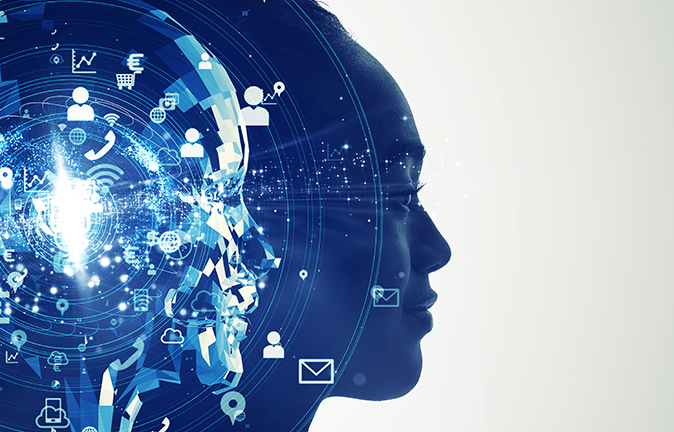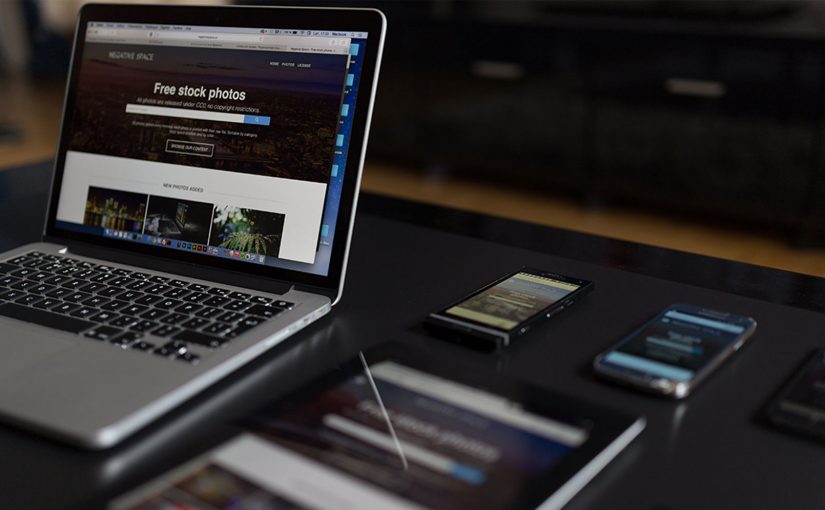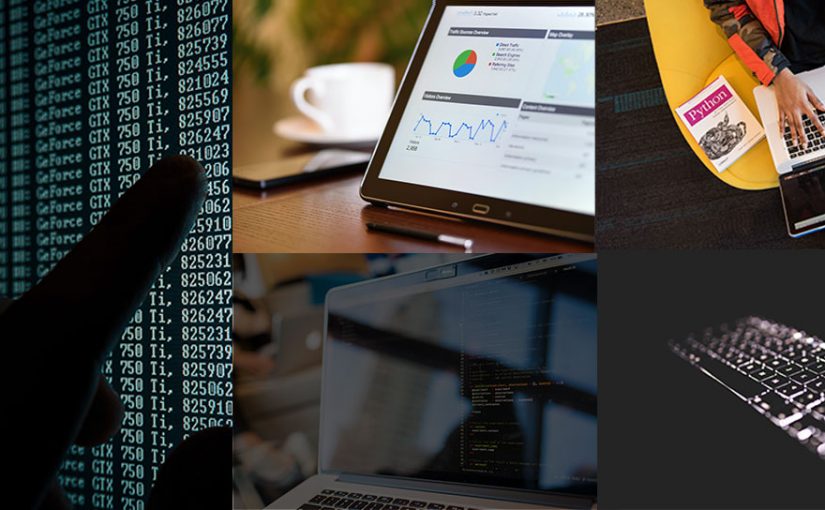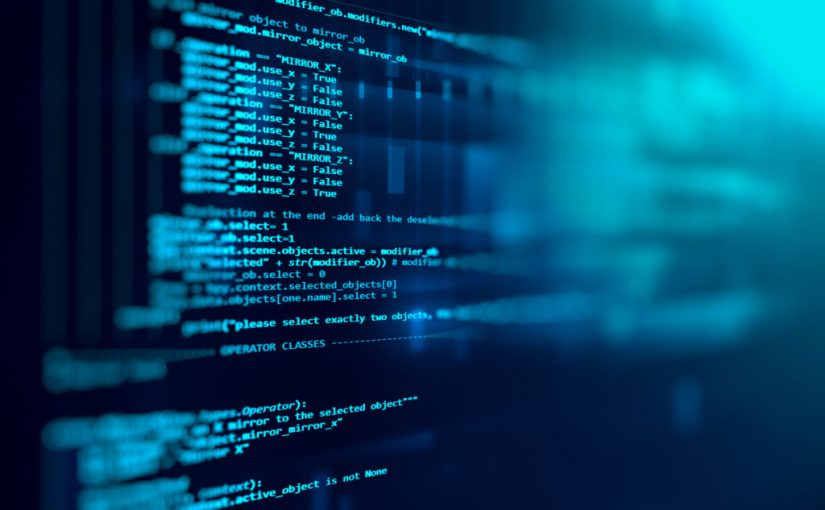I imagine a world in which AI is going to make us work more productively, live longer, and have cleaner energy
January 11, 2021Artificial intelligence or AI, is the intelligence displayed by machinery. This intelligence allows the machinery to learn from experiences, adjust responses according to inputs and perform tasks similar to how a human would. We’ve all watched science fiction movies where robots take over the world and enslave humans and wondered if AI will take control and cause havoc in the world as we know it. However, artificial intelligence has done the very opposite for the human race. Creating improvements in efficiency and helping to save time in completing projects; allowing companies to conduct business with a swift speed of delivery without compromising on the quality. The introduction of artificial intelligence (AI) has altered the course of life for the people.
As artificial intelligence (AI) continues to dig deeper into the ground and spread its roots in the industry, it is no surprise that the future holds a world where people and artificial intelligence will work hand in hand. It is forecasted that by the year 20205, the artificial intelligence market is going to reach a jaw dropping $190 billion! This is only the beginning of artificial intelligence (AI) seeping into the workplace. As AI becomes more prominent in the work spaces, it will force leaders to reconsider their business and plan out action. Every day, more startups are utilizing artificial intelligence to increase the productivity per hour at work and see a prominent growth in efficiency at work.
Technology can be useful in many different ways; it can provide workers with online assistance, shift unstructured data into organized and easily readable data, and produce an insight into how things are going and what to expect. Tasks that would usually take an average human being days to complete can be completed with the help of AI technology in a matter of seconds. Artificial intelligence has a bright future that will illuminate the avenues of jobs, businesses, E-Commerce and life in general.
However, one can’t help but wonder what impacts will artificial intelligence have on careers and the job domain? Will artificial intelligence consume all the jobs leaving people unemployed or will it create them?
In less than a decade, our work spaces will have evolved exponentially; they will look completely different and that too for the better. Due to the technologies like artificial intelligence, and robotics, work will go through a metamorphosis. The future holds in itself great opportunities for growth, however, there will also be a lot of challenges that accompany this change. People will have to change their ways to make place for artificial intelligence and adapt to the new working environment to fully flourish in the new and improved work space. It will provide the team along with the managers to adopt smart work. Artificial intelligence will add to your jobs, the IoT will assist with the little details, insights and the robotics will replace many jobs that will become redundant in this new work environment.
Although artificial intelligence changing the way we view work at whirlwind rates, nobody can claim with certainty the fate of the work and the impact of AI on both; people’s personal and professional lives but we can make some fact based guesses and they are as follows:
OFFICE ENVIRONMENT AND ARTIFICIAL INTELLIGENCE
Artificial intelligence has proven itself to be beneficial in almost each domain and has transformed the world of technology to an unimaginable extent. In the future artificial intelligence will aid people by assisting in superior automated analytics. This way it will take away the need for human decision-making and replace it with decision making done with the help of artificial intelligence. Artificial intelligence is still new to people and companies are trying to comprehend its full functionality and how it affects the changes in the market; the way artificial intelligence can predict the behavior of the customers in advance will provide businesses the edge over other companies that they are competing against. By making meticulous anticipations, any company can become efficient and polish its performance in the market by delivering services and products that speak to the consumer.
When companies begin to implement AI, it will have a tremendous effect on the global economy as well. It will improve the global market and increase prosperity in the work spaces. McKinsey Global Institute states that artificial intelligence has the capacity of creating a reverse effect on the swiftly declining productivity of the labor force in some parts of Europe and in the United States. McKinsey adds that the overall growth could expeditiously increase with an average rate of 2% per annum due to the availability of digital technologies like AI. The implementation of artificial intelligence tools early on can assist organizations to become increasingly collaborative and team centric, as opposed to the top down structure of the office hierarchy that is usually followed in traditional office environments. Artificial intelligence can help the office environment immensely due to one of the core effects of its implementation; by handling all the logistics and everyday tasks that may feel redundant to the employees, AI will give the workers an opportunity to focus their energy on the creative work and generate new innovative ideas.
“We can build a much brighter future where humans are relieved of menial work using AI capabilities”.
-Andrew Ng
Another benefit of artificial intelligence, one that is not limited to office spaces, will be medical artificial intelligence. With the use of different systems, AI will be able to detect, provide prognosis, and even treat illnesses with more precision and accuracy. Artificial intelligence will also assist by predicting illnesses before the appearance of any apparent symptoms. This will be a revolutionary transition and it will erase the possibility of human error from the equation. Companies will be able to better prepare and understand the requirements of their employees and be mentally prepared for the future absenteeism of a worker.
LEADERSHIP, EMPLOYEES AND ARTIFICIAL INTELLIGENCE
Workers and specially leaders need to be prepared to embrace the magnification of technology and artificial intelligence. Leadership will take a drastic turn and the process will change for the better. Job descriptions will change as the required skill sets for each job will shift with less focus on calculable tasks that can be completed with the help of AI. This does not mean that artificial intelligence will take over the jobs of the people, however, it does suggest that employees will have additional support to conduct their business and go about their daily tasks with more efficiency. Due to the integration of artificial intelligence, there will certainly be an increase in certain fields of work i.e. data scientists, application developers, programmers and other technical skilled employees.
“AI is neither good nor evil. It’s a tool. It’s a technology for us to use”.
– Oren Etzioni
This shift will require the leaders to be on their toes and keep a vigilant eye on the processes that are taking place. This will mean that the leaders first choose a team of like-minded teams. Looking for a team that has both skill and ability to adapt to the changes in work space is no piece of cake. Leaders should apply the integration of artificial intelligence with a single department first, rather than jumping head first into a change that might become unmanageable. Once the department has become well accustomed to the change, only then should a leader focus on expanding the integration over other departments; trying to get the entire company onboard at once may leave the company at 6’s and 7’s.
Artificial intelligence allows companies to use enhanced equipment that expeditiously increase coherence and organize work in a manner that assists employees in polishing their work output. Employees would benefit from the creation of new job roles in the department of manufacturing where employees would be required to enable machinery so that it can enhance the human capacity of productivity in return. Employees would also reap the fruit of improvement in the process of decision making. Artificial intelligence will assist in the detection of errors and help to achieve more precise decisions.
The globe will witness economic growth as a result of the integration of artificial intelligence; contrary to popular belief, the demand for workers will increase. AI will give birth to multiple new occupations that are foreign to the human race at the moment. One should not be worried about a decrease in opportunities in the coming years. The employees will simply have to tweak their skill sets to make way for artificial intelligence.
Drift your imagination to a time when there were no calculators; mental calculations were not just important but people who could perform well in mental math did better in fields such as accounts. Then came along a calculator. It did not leave the accountants jobless, it just made their work quicker and helped them cover more work in a smaller span of time, and all they had to do was learn how to operate a calculator. It is the same with AI. People will not lose their jobs, at best some portion of their job will be eliminated as artificial intelligence will help to do that work for the employees.
The patterns in history stand as proof that whenever there has been a new technology, it has always brought with it many new job openings. The integration of robotics will replace certain employments, however, as a result many more jobs will be created. As stated by the 2018 World Economic Forum report, AI will present around 133 million new jobs as compared to the 75 million that it will override.
HUMAN RESOURCE AND AI
Artificial intelligence will increase the quality of the recruitment work. With the help of artificial intelligence, it will become possible to eliminate any biased recruitment. It will unveil any discrimination during interviewing and screening of a potential candidate. Candidate selection will become fairer. That is not all. Once the appropriate employees have been hired, AI can ensure that the team remains productive by keeping a track of how the employees handle different aspects of the work e.g. tracking how the employee uses the computers and which tasks peak the employee’s productivity.
Artificial intelligence can assist in performance evaluation and granting promotions without any biases. In return, HR managers can focus on devising new initiatives to improve the workplace. By highlighting biases that take place in the work environment, companies will be able to shift their methods to ensure that the company stays fair and open to diversity. AI also allows managers to consider personal aspects that affect performance of an employee; these aspects of the job were previously dependent on the mere observation of the managers.
Accenture’s Chief Technology and Innovation Officer, Paul Daugherty stated at the World Economic Forum that: “Human plus machine equals superpowers.” This statement is no exaggeration and the idea is not a far-fetched one either. Automation will be able to fill many positions that are unfilled in the present. According to Paul Daugherty there is a supply gap of 150,000 truck drivers in the United States alone. With the assistance of automation, the productivity of drivers can be increased and a more attractive lifestyle can be introduced that would pull people to opt for this industry.
AI AND SHARED AUGMENTED WORKSPACES
With the help of AI, humans can work with telerobotics. These are machines that can be operated by humans remotely. They can be controlled from a distance and this will shape the future of what we currently call workspace. It has the potential to allow many employees to work from home in fields where remote work is currently unavailable. Virtual meetings could become the new normal, ensuring that work continues as usual even if the employees are scattered across the globe.
The technologies being created to assist in virtual communication will exponentially enhance the way an employee experiences remote working today. With Wi-Fi and portal devices becoming the new normal, companies will be allowed to have more dispersed teams and find the appropriate employees that are the best for their line of work, no matter where they are in the world. Virtual offices will also cut down on the cost of the offices. Employing globally rather than locally will enable many talented people to find top notch jobs who were previously unable to fit appropriate work due to their location.
AI AND COLLABORATION
The future holds an office environment where humans and machines work hand in hand. According to Accenture, human and machine collaborations will increase the production and the capital it generates by 38 percent. 66 percent of the business leaders believe that this human and AI collaboration will aid in achieving goals expeditiously. The outcome of any such collaboration will yield positive results
With employment shifting to a global level rather than local, large scale companies will benefit by the easy sharing of dispersing of data and knowledge among staff members. Although sharing data is usually not a concern for companies of a small and average scale, it is sometimes difficult for large enterprises to find and disperse the correct knowledge to the appropriate employee. This is where AI will make a significant difference.
Artificial Intelligence also has many other perks to offer. It can assist to manage and organize disparate data sources, update the database and provide multiple tools that an employee and manager can utilize to manage the work efficiently. Artificial intelligence also allows employees to use chatbots. This can serve as an internally run system where employees can enter queries and requests and the chatbots comprehend this data according to the context and provide contextual based answers to these questions.
AI AND EFFICIENCY
With the help of artificial intelligence, companies will be able to increase the productivity in the offices of the near future. As manual and mundane tasks that do not require critical thinking, become automated, AI will allow human labor to have more free time on their hands to carry out more creative and innovative tasks. With these tedious tasks taken care of, employees can fully focus on quintessential client based tasks that require the input of a human. With artificial intelligence, everyday tasks will also be completed more efficiently without delays or human errors becoming a hurdle in the way. Meanwhile, employees and managers can focus on creativity and growth that are vital for the prosperity of the company.
These changes will cause the employees to feel jocund in their designated job roles and avoid any redundancy in work that may have slowed down the team in the past. The highly motivated team will in return lead to an improved client experience. The time of the employee will be better valued by utilizing every passing hour in the direction of improvement. The productivity of the workplace will see an exponential growth in the near future due to the implementation of artificial intelligence. When artificial intelligence is paired with the Internet of Things, better prediction of trends will be possible which will make companies become more sustainable in the long run.
Artificial Intelligence will change the course of companies and completely evolve the manner in which companies are currently run; pairing AI with the human mind will help solve complex queries and help companies take big leaps towards success.
AI will also make it easier to predict issues before they arise and accurately identify the challenges that may be slowing the company down. If companies can implement AI responsibly, the companies would no longer have to be either customer or client centric; companies could focus on both equally and improve the experience of the people in the company and the people dealing with the company.
“If our era is the next Industrial Revolution, as many claim, AI is surely one of its driving forces”.
– Fei-Fei Li
AI AND CUSTOMER SERVICE
Companies do not have a lot of interaction with their clients. They interact with the clients when the customer buys a service/product or when the customer reaches out for support when faced with any issues with the service/product. This leads to many blind spots in the customer service experience. However, due to the world shifting online, there is plenty of data available about the customers online. With the help of artificial intelligence, companies can get better insight into the needs and requirements of the customers. This deeper understanding of the targeted audience would reshape the process of how products are being created.
Of course, this does not mean that the need for human presence will evaporate. It will allow companies to provide AI supported virtual assistance to their customers. The Gartner report states that it is possible that 85 percent of customer relationships will be backed with AI to increase the customer experience.
With the availability of conversational intelligence such as chatbots, it is now possible for companies to assist their customers through a digital avenue that helps create a bond between the customer and the company, instead of a simple conversation that treats each chat as a transaction. These personalized connections with the customer later translate into brand loyalty and a feeling of ownership in the customer that was missing in a world without AI.
CONCLUSION
Artificial Intelligence is making its place in every industry and it is changing how we view work drastically. AI has the potential to seep into any industry and break down complex problems to make them simple and solvable. If a company wishes to succeed in these fast changing times, it is essential that they welcome AI with open arms. The possibilities of humans working with technology are endless!
The time is not far when Ai will be integrated into most of the industries and companies will implement automation in their work spaces. It is essential to keep in mind that this shift in office culture in no way translates into unemployment for the workers. With twice as many jobs created as dissolved, there will be a rise of many new opportunities for humans. AI will not override human intelligence, rather it will complement the employee’s capabilities.
There is no doubt that the work in the future will be more advanced and more productive. The tasks that slow down the work of the employees today will be catered to by the help of AI; augmenting employees’ work output and productivity. Companies that understand the use of AI and embrace this new tool will be able to surpass their competitors and have a more healthy office environment due to the employees being less burdened with energy exhausting redundant tasks.




